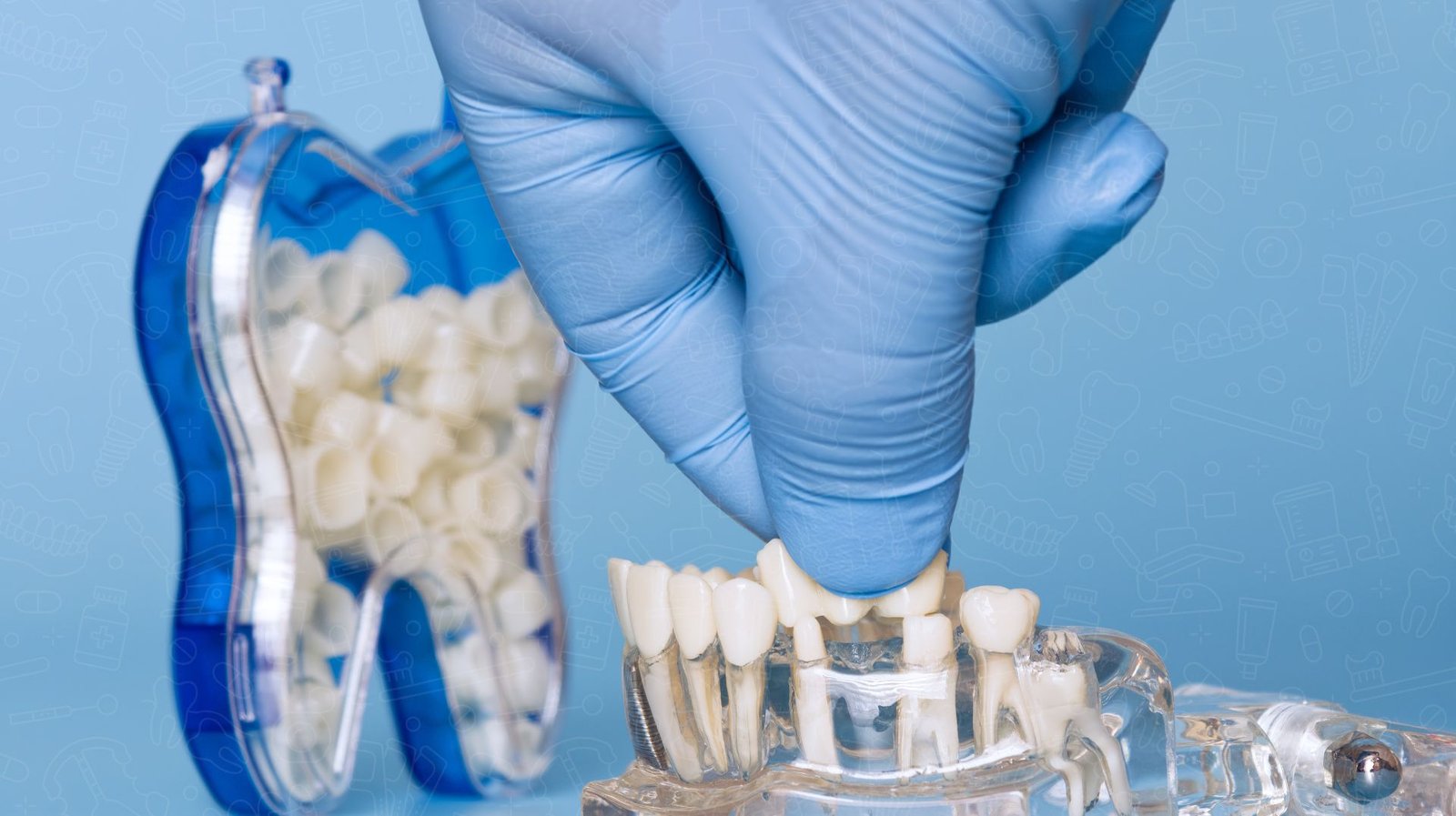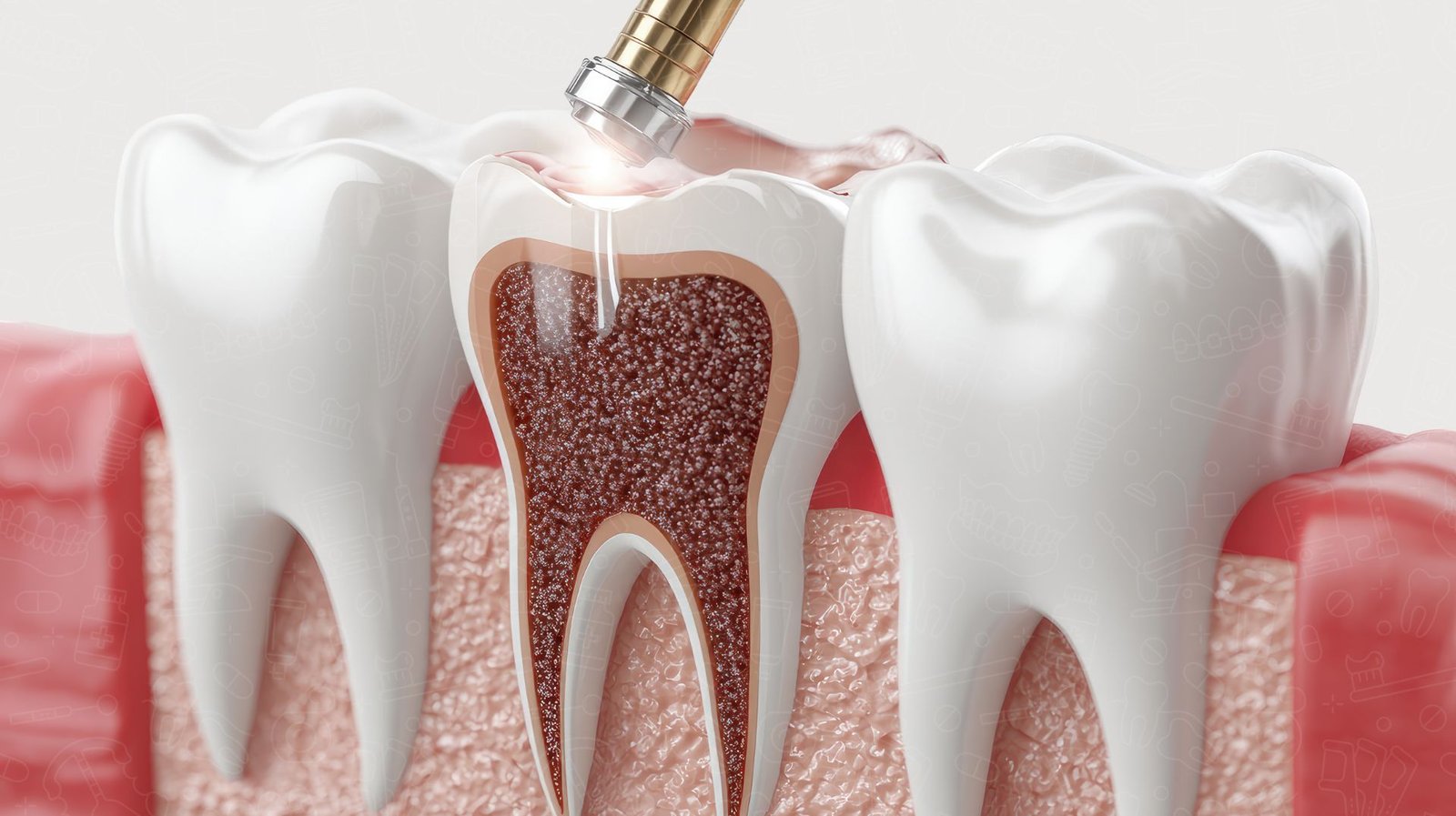Introduction to Dental Hygiene Tips for Kids
Dental hygiene is a vital aspect of overall health, especially for kids who are developing their teeth and oral hygiene habits. Establishing good dental habits in childhood lays the groundwork for lifelong oral health and well-being. In this article, we'll delve into the importance of dental hygiene for tips for kids and highlight how these early habits can pave the way for healthy smiles and gums throughout their lives.
Dental Hygiene Tips for Kids: Regular Brushing Routine
Ensuring that kids brush their teeth regularly is a cornerstone of good dental hygiene tips for kids. Here are some essential tips to help establish a regular brushing routine and optimize the dental hygiene for kids:
- Frequency of Brushing: Kids should brush at least twice daily, after breakfast and before bedtime, to remove food particles and bacteria, preventing tooth decay and gum disease.
- Amount of Toothpaste: Use a pea-sized amount for kids under six to avoid excessive fluoride ingestion, while older kids can use a bit more under supervision to prevent swallowing.
- Brushing Technique: Teach gentle circular motions, brushing all tooth surfaces and the tongue to ensure thorough cleaning and fresh breath.
- Duration of Brushing: Encourage brushing for at least two minutes each time with a timer or fun song to make it enjoyable and ensure comprehensive cleaning.
- Choosing the Right Toothbrush: Opt for soft-bristled brushes with a small head suitable for your child's age, possibly featuring their favorite character for added appeal.
- Supervision and Assistance: Parents should supervise brushing until kids can do it independently, ensuring proper technique and thorough cleaning.
- Consistency is Key: Establish a daily brushing routine to reinforce oral care's importance and make it a natural part of their daily habits as a dental hygiene tips for kids.
By emphasizing the need for regular brushing, using the right amount of toothpaste, teaching proper brushing technique, ensuring adequate brushing duration, choosing appropriate toothbrushes, providing supervision and assistance as needed, and maintaining consistency, parents can help instill lifelong habits of good dental hygiene in their kids. These simple yet crucial steps contribute significantly to maintaining healthy teeth and gums throughout childhood and beyond.
Dental Hygiene Tips for Kids: Proper Brushing Technique
Teaching the correct brushing technique is fundamental to the dental hygiene tips for kids. Here's a detailed guide on the proper brushing technique for kids, focusing on gentle circular motions, thorough coverage of all tooth surfaces, and the importance of brushing the tongue:
- Gentle Circular Motions: Encourage kids to use gentle circular motions while brushing to remove plaque without harming gums or enamel, covering all tooth surfaces.
- Brushing All Tooth Surfaces: Teach brushing fronts, backs, and chewing surfaces, angling towards the gum line for thorough cleaning and plaque removal.
- Brushing the Tongue: Explain tongue brushing to remove bacteria causing bad breath, moving gently from back to front for freshness.
- Using the Right Toothbrush: Use a soft-bristled brush with a small head suitable for age, replacing every few months for effective cleaning.
- Duration of Brushing: Ensure at least two minutes of brushing each time, using a timer for tracking and stressing thoroughness.
- Supervision and Demonstration: Parents should initially supervise and demonstrate proper technique, offering guidance until mastered.
- Consistency and Routine: Establish a consistent twice-daily brushing routine for optimal oral health and habit reinforcement.
By teaching kids the proper brushing technique, emphasizing gentle circular motions and thorough coverage of all tooth surfaces, highlighting the importance of brushing the tongue, using the right toothbrush, ensuring adequate brushing duration, providing supervision and demonstration, and maintaining a consistent brushing routine, parents can help their children develop lifelong habits of effective dental hygiene. These simple yet crucial steps contribute significantly to maintaining healthy teeth, gums, and overall oral health in kids.
Dental Hygiene Tips for Kids: Flossing Tips
Flossing is a crucial part of dental hygiene that often gets overlooked but is essential for maintaining healthy teeth and gums. Here's a detailed guide on the significance of flossing and how to do it properly to ensure optimal oral health for kids:
- Significance of Flossing: Highlight flossing's role in removing plaque and bacteria between teeth, vital for preventing cavities and gum issues.
- Proper Flossing Technique: Teach gentle sawing motion to guide floss between teeth, curving around each tooth in a C-shape for thorough cleaning without hurting gums.
- Choosing the Right Floss: Use soft, flexible floss or floss picks comfortable for kids to handle, letting them choose what suits them best.
- Flossing Frequency: Encourage daily flossing, preferably before bedtime, and after meals with sticky food for consistent plaque removal.
- Supervision and Assistance: Initially supervise and assist with flossing until they can do it independently, demonstrating correct technique and gentle pressure.
- Demonstration and Practice: Show how to floss using a piece of floss, guiding them until they feel confident doing it alone.
- Consistency and Persistence: Stress the importance of regular flossing in their daily routine for healthy teeth and gums, encouraging persistence for long-term benefits.
By stressing the significance of flossing, providing guidance on proper flossing technique, choosing the right floss, establishing flossing frequency, offering supervision and assistance, demonstrating and practicing flossing together, and promoting consistency and persistence, parents can help their kids develop effective flossing habits for a lifetime of optimal dental hygiene. These flossing tips contribute significantly to preventing cavities, gum disease, and promoting overall oral health in children.
Dental Hygiene Tips for Kids: Healthy Eating Habits
Diet plays a significant role in dental health, especially for kids who are developing their teeth and oral hygiene habits. Encouraging a balanced diet with limited sugary snacks and drinks can greatly contribute to maintaining healthy teeth and gums. Here's a detailed discussion on the impact of diet on dental health and recommendations for tooth-friendly snacks:
- Impact of Diet on Dental Health: Sugary foods fuel harmful mouth bacteria, causing decay; stress limiting sugars for healthier teeth.
- Balanced Diet Recommendations: Promote varied foods from all groups—fruits, veggies, grains, proteins, dairy—for overall health, including dental wellness.
- Limiting Sugary Snacks and Drinks: Reduce sugary snacks between meals, replacing with healthier options to prevent tooth decay.
- Tooth-Friendly Snacks: Recommend low-sugar fruits (apples, strawberries), crunchy veggies (carrots, cucumbers), and cheese for dental benefits.
- Encouraging Water Consumption: Drink water to rinse food particles, stay hydrated, and reduce dry mouth and bacteria growth.
- Snack Preparation Tips: Make fun snacks like fruit skewers, veggie sticks with yogurt dip, cheese and crackers, or homemade smoothies with fresh fruits and yogurt.
- Educating About Food Choices: Teach kids to read labels, choose low-sugar snacks for healthier teeth and overall well-being.
By discussing the impact of diet on dental health, encouraging a balanced diet with limited sugary snacks and drinks, recommending tooth-friendly snacks like fruits, vegetables, and cheese, promoting water consumption, providing snack preparation tips, and educating children about food choices, parents and caregivers can help their kids develop healthy eating habits that support optimal dental health. These dietary tips contribute significantly to preventing tooth decay, cavities, and promoting strong, healthy teeth for kids.
Dental Hygiene Tips for Kids: Regular Dental Checkups
Regular dental checkups are crucial for maintaining optimal oral health in children. Here's a comprehensive guide highlighting the importance of regular dental visits, addressing common concerns, and providing tips to make dental visits more comfortable for kids:
- Importance of Regular Dental Checkups: Regular visits help dentists detect issues early, provide preventive care, and remove plaque for healthier teeth.
- Early Detection and Prevention: Checkups catch problems early, preventing serious issues like cavities or misaligned teeth in the future.
- Educating About Oral Hygiene: Dentists teach proper brushing, diet, and personalized tips for maintaining oral health.
- Addressing Fear of the Dentist: Assure kids about friendly dentists, explain procedures positively to ease fears.
- Creating a Positive Dental Experience: Make visits comfortable with scheduling, favorite items, positive reinforcement.
- Choosing a Kid-Friendly Dentist: Opt for pediatric dentists who create a welcoming environment for kids.
- Routine Follow-Up Appointments: Schedule follow-ups as advised for continued care and monitoring.
- Dental Health Education for Parents: Parents play a crucial role in reinforcing good oral habits and diet for their child's dental health.
By highlighting the importance of regular dental checkups, addressing common concerns like fear of the dentist, providing tips to make dental visits more comfortable, and emphasizing the role of parents in maintaining oral health, children can experience positive dental experiences and develop lifelong habits of good dental hygiene. Regular dental checkups are key to ensuring healthy teeth, gums, and overall oral health in kids.
Dental Hygiene Tips for Kids: Use of Fluoride
Understanding the benefits of fluoride and its sources is essential for maintaining optimal dental hygiene in children. Here's an in-depth look at the advantages of fluoride in preventing tooth decay and the various sources of fluoride, including fluoridated toothpaste and water:
- Benefits of Fluoride in Preventing Tooth Decay: Fluoride helps strengthen tooth enamel, making it more resistant to acid attacks from bacteria and acids in the mouth. This leads to a reduced risk of cavities and maintains overall dental health.
- Protecting Tooth Enamel: Fluoride repairs enamel, making teeth more resilient against decay.
- Reducing Cavities: Consistent fluoride use significantly decreases cavities and promotes long-term oral health.
- Fluoride Sources: Fluoridated toothpaste and water are key sources for dental protection.
- Fluoridated Water: Drinking fluoridated water strengthens teeth internally and guards against cavities.
- Fluoride Treatments: Dentists may suggest fluoride treatments for added dental defense.
- Supervision and Proper Use: Supervise children to prevent excessive fluoride intake and enamel issues.
- Educating About Fluoride: Teach about fluoride's benefits and encourage proper oral care habits.
By explaining the benefits of fluoride in preventing tooth decay, discussing fluoride sources like fluoridated toothpaste and water, emphasizing supervision and proper use, and educating about fluoride's role in dental health, parents and caregivers can help children reap the benefits of fluoride for strong, healthy teeth and gums. Incorporating fluoride into a comprehensive oral care routine is key to promoting lifelong dental hygiene and preventing dental problems in kids.
Dental Hygiene Tips for Kids: Avoiding Bad Habits
Encouraging kids to avoid harmful habits like thumb-sucking and nail-biting is crucial for maintaining optimal dental hygiene. Here are detailed strategies and dental hygiene tips for kids to break these habits gently and protect their dental health:
- Understanding the Impact on Dental Health: Explain how habits like thumb-sucking and nail-biting can harm teeth and gums.
- Educating About the Consequences: Teach kids how these habits can cause dental problems and discomfort.
- Identifying Triggers: Help children recognize what makes them engage in these habits, like stress or boredom.
- Positive Reinforcement: Use rewards and praise to motivate kids to stop thumb-sucking or nail-biting.
- Offering Distraction Techniques: Provide fun activities to divert attention from these habits.
- Gentle Reminders and Encouragement: Use positive reminders throughout the day to support kids in breaking the habit.
- Seeking Professional Help: Consider professional guidance if habits persist or cause dental issues.
- Involving Parents and Caregivers: Collaborate with adults to create a consistent approach to breaking these habits.
By warning against harmful habits like thumb-sucking and nail-biting, offering gentle strategies for breaking these habits, providing positive reinforcement, offering distraction techniques, providing gentle reminders, seeking professional help when needed, and involving parents and caregivers, children can successfully break these habits and maintain optimal dental hygiene tips for kids. Consistent efforts and a supportive approach are key to helping children overcome these habits and protect their dental health.
Dental Hygiene Tips for Kids: Encouraging Positive Reinforcement
Using rewards and positive reinforcement is a powerful way to motivate kids to maintain good dental habits. Here are some effective dental hygiene tips for kids, including ideas like sticker charts and praise, to encourage positive dental hygiene habits in children:
- Understanding the Importance of Positive Reinforcement: Explain how positive reinforcement fosters good dental habits by creating a positive association with dental care.
- Suggest Using Rewards: Encourage using simple rewards like stickers or small toys to motivate consistent brushing and flossing.
- Create a Sticker Chart: Utilize a sticker chart to visually track progress and reward children for successful dental hygiene practices.
- Praise and Positive Feedback: Emphasize the value of praising children for good dental habits to boost their self-esteem and reinforce the importance of oral hygiene.
- Make it Fun and Interactive: Incorporate fun elements like colorful toothbrushes or playing music to make dental care enjoyable and engaging.
- Set Goals and Celebrate Milestones: Set achievable goals and celebrate achievements to motivate children and reinforce their commitment to dental health.
- Involve Children in Decision-Making: Empower children by letting them make choices about their dental care, fostering responsibility and ownership.
- Consistency is Key: Stress the need for consistent positive reinforcement to establish lifelong dental habits and promote overall oral health.
By suggesting the use of rewards and positive reinforcement, including ideas like sticker charts and praise, parents and caregivers can effectively motivate kids to maintain good dental habits. These positive dental hygiene tips for kids create a supportive and encouraging environment that fosters a positive attitude towards dental care and sets the foundation for lifelong oral health.
Conclusion: Prioritizing Dental Hygiene Tips for Kids
In conclusion, maintaining good dental hygiene habits is crucial for children's oral health and overall well-being. Let's recap the key dental hygiene tips for kids discussed in this article and encourage parents and caregivers to prioritize their children's dental health for bright smiles and optimal health:
- Regular Brushing and Flossing: Stress the need for brushing teeth twice daily with fluoride toothpaste and daily flossing to prevent cavities and remove plaque.
- Proper Brushing Technique: Teach gentle circular motions and thorough brushing of all tooth surfaces, including the tongue, for at least two minutes per session.
- Healthy Eating Habits: Promote a balanced diet with limited sugary snacks and drinks, emphasizing tooth-friendly options like fruits, vegetables, and cheese.
- Regular Dental Checkups: Highlight the benefits of checkups, cleanings, and early problem detection during regular dental visits.
- Use of Fluoride: Explain fluoride's role in preventing tooth decay, including its presence in toothpaste, water, and professional treatments.
- Avoiding Bad Habits: Discourage harmful habits like thumb-sucking and nail-biting, providing strategies for breaking these habits gently.
- Encouraging Positive Reinforcement: Recommend using rewards, praise, and positive methods to motivate kids in maintaining good dental habits, such as using sticker charts and celebrating achievements.
It's essential for parents and caregivers to prioritize their children's dental health by implementing these tips into their daily routines. By establishing good dental habits early on, children can enjoy bright smiles, strong teeth, and overall well-being throughout their lives. Regular dental care, healthy habits, and positive reinforcement create a foundation for a lifetime of optimal oral health.
In conclusion, dental hygiene tips for kids are not just about preventing cavities; they are about setting the foundation for a lifetime of healthy smiles and overall well-being. By emphasizing the importance of dental hygiene and teaching children good oral care habits early on, parents and caregivers can help them enjoy the lifelong benefits of a healthy mouth.





